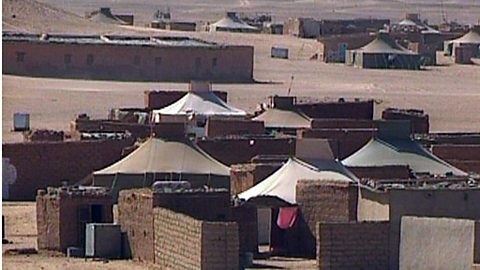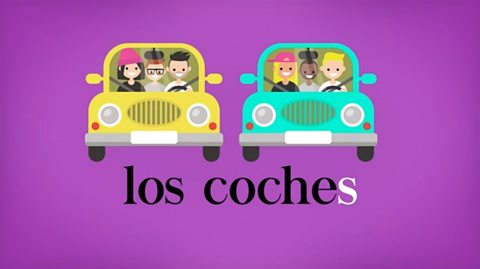Listening
Making arrangements
Understanding detailed spoken Spanish demands a knowledge of vocabulary and an awareness of grammar. With these skills it is possible to communicate effectively with others.

Personal description
Understanding detailed spoken Spanish demands a knowledge of vocabulary and an awareness of grammar. With these skills it is possible to find the main message of a text and specific details.

Interpersonal relationships
Understanding detailed spoken Spanish demands a knowledge of vocabulary and an awareness of grammar. With these skills it is possible to find the main message of a text and specific details.

Household chores and free time
Understanding detailed spoken Spanish demands a knowledge of vocabulary and an awareness of grammar. With these skills it is possible to find the main message of a text and specific details.

Interview
Understanding detailed spoken Spanish demands a knowledge of vocabulary and an awareness of grammar. With these skills it is possible to find the main message of a text and specific details.

Education and work
Understanding detailed spoken Spanish demands a knowledge of vocabulary and an awareness of grammar. With these skills it is possible to find the main message of a text and specific details.

- 26 videos

Reading
Pocket money
In the National 5 Reading paper you need to read three texts in Spanish and answer questions on them in English. You need to understand detailed written language on different contexts: society, learning, employability and culture. This could include pocket money and earnings.

Leisure
In the National 5 Reading paper you need to read three texts in Spanish and answer questions on them in English. You need to understand detailed written language on different contexts: society, learning, employability and culture.

Pastimes
In the National 5 Reading paper you need to read three texts in Spanish and answer questions on them in English. You need to understand detailed written language on different contexts: society, learning, employability and culture. This could include hobbies and pastimes.

Local area and weather
In the National 5 Reading paper you need to read three texts in Spanish and answer questions on them in English. You need to understand detailed written language on different contexts: society, learning, employability and culture. This could include talking about the local area and the weather.

Friends and family
In the National 5 Reading paper you need to read three texts in Spanish and answer the questions in English. You need to understand detailed written language on different contexts: society, learning, employability and culture.

Interpersonal relationships
In the National 5 Reading paper you need to read three texts in Spanish and answer questions on them in English. You need to understand detailed written language on different contexts: society, learning, employability and culture. This could include interpersonal relationships.

Talking
Culture
Talking about a variety of topics in Spanish requires a knowledge of vocabulary, an awareness of grammar and the ability to use a dictionary effectively.

Employability
Talking about a variety of topics in Spanish requires a knowledge of vocabulary, an awareness of grammar and the ability to use a dictionary effectively.

Learning
Talking about a variety of topics in Spanish requires a knowledge of vocabulary, an awareness of grammar and the ability to use a dictionary effectively.

Society
Talking about a variety of topics in Spanish requires a knowledge of vocabulary, an awareness of grammar and the ability to use a dictionary effectively.

- 15 videos

Writing
Job application
For the National 5 Writing paper you need to write a 120–150 words application for a job advert. You need to address four unchanging bullet points and two additional points. You can use a bilingual dictionary.

Health
For the National 5 Writing assignment, you need to write 120–200 words using detailed language, This will be based on one of the following contexts: society, learning or culture. One of the contexts for society is health and lifestyle.

Grammar
Nouns and articles
A noun is a naming word used for a person, thing, place or idea. In Spanish, all nouns are either masculine or feminine. The word for 'the' or 'a' changes depending on the gender of the noun and whether it is singular or plural.

Adjectives
An adjective is a word that describes a noun. In Spanish, adjectives have different endings depending on whether the word they are describing is masculine, feminine, singular or plural.

Adverbs
Adverbs are words that add meaning to the verb and describe actions. They tell us when or how something is happening or where the action in a sentence takes place.

Pronouns
Pronouns are used to replace nouns. Pronouns are usually shorter and quicker ways of referring to a noun to help make sentences less repetitive.

Present tense
Use the present tense to describe what you do and what things are like. The present continuous can be used to talk about what is happening now.

Preterite tense
Use the preterite tense to talk about completed actions at specific times in the past. The preterite is used when the past action has a definite beginning and definite end.

Imperfect tense
Use the imperfect tense to talk about repeated or continuous actions in the past. The imperfect is used when the past action doesn’t have a definite beginning and definite end.

Perfect tense
The perfect tense is used to express or describe actions that have happened in the recent past. It has two parts that always need to be used together.

Future tenses
Use the immediate future tense to talk about what is going to happen. The future tense is used to express what will take place.

Conditional tense
Use the conditional tense to talk about intentions and ambitions that may happen in the future. The conditional is used for polite requests and to express phrases using 'would', 'could' and 'should'.

Negatives
Negative words can be used in different ways in Spanish. Construct negative sentences by using 'no' and other negative words and phrases.
